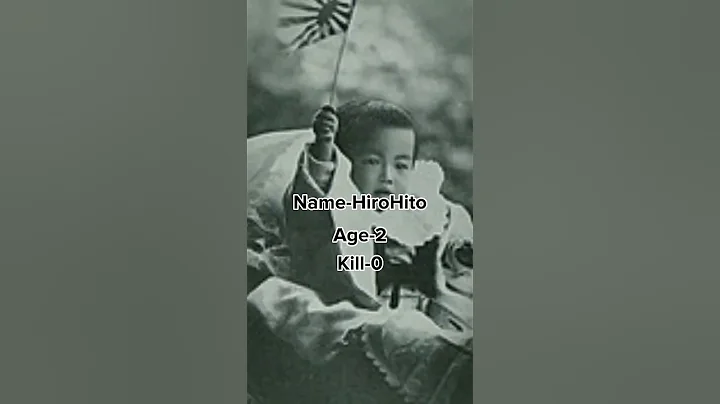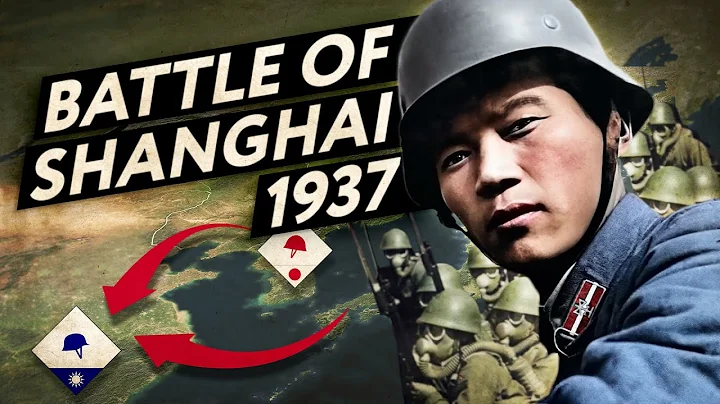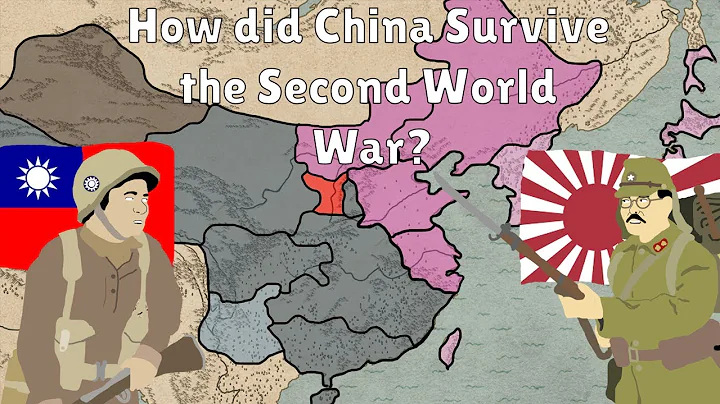Important Discussion
July 16, 1936
Mao Zedong discussed with Snow the situation and policy issues of China's Anti-Japanese War. The talk pointed out: China's victory over Japanese imperialism requires three conditions: first, the completion of the Chinese anti-Japanese united front; second, the completion of the international anti-Japanese united front; and third, the rise of the revolutionary movement of the people in Japan and the Japanese colonial people. Among these three conditions, the great unity of the Chinese people is the most important. As for how long the war can be prolonged, it depends on the strength of China's anti-Japanese united front and many other decisive factors between China and Japan. If China's anti-Japanese united front is effectively organized, governments and peoples of all countries can provide necessary assistance to China, and Japan starts revolution quickly, then this war will end quickly and China will win quickly. If these conditions are not achieved soon, the war will be prolonged. But the result is still the same: Japan will lose and China will win. China's urgent task is to recover all lost territory, not just to defend our sovereignty within the Great Wall. Northeast must be recovered. The same applies to Taiwan.
Regarding the strategic policy of this war, we should use our main force to fight on a long and unstable front. If the Chinese army wants to win, it must conduct a high degree of mobile warfare on a vast battlefield, advance quickly and retreat quickly, concentrate quickly, and disperse quickly. This is a large-scale mobile warfare, not a positional warfare with deep trenches, high fortifications, layers of fortifications, and reliance on fortifications. Changing the overall strategic policy must be mobile warfare. Although positional warfare is also necessary, it is a secondary policy of a auxiliary nature. In the early stage of the war, we must avoid any major decisive battles and first use mobile warfare to gradually destroy the enemy's army's spirit and combat effectiveness. In addition, we must organize many guerrilla groups among farmers. Chinese farmers have great potential. As long as they are properly organized and directed, they can keep the Japanese army busy twenty-four hours a day and make them exhausted. We must remember that this war is being fought in China, which means that the Japanese army will be completely surrounded by the hostile Chinese; the Japanese army will be forced to transport the military supplies they need, and they will have to guard it themselves; they will have to use heavy troops To protect communication lines and be on guard against attacks at all times; in addition, a large force must be stationed in Manchuria and the interior of Japan. During the course of the war, China was able to capture many Japanese soldiers and seize many weapons and ammunition to arm itself; at the same time, it enlisted foreign aid to gradually strengthen the equipment of the Chinese army. Therefore, China was able to engage in positional warfare in the later stages of the war and conduct positional attacks on Japanese occupied areas. In this way, Japan's economy is about to collapse under the long-term consumption of China's anti-war ; its morale is about to decline after being consumed by countless wars. In China, the potential of the war of resistance is growing day by day, and large numbers of revolutionary people continue to pour into the front lines to fight for freedom. The combination of all these factors and other factors enables us to launch a final and fatal attack on the fortresses and base areas in the Japanese occupied areas and expel the Japanese aggressors from China. This conversation is included in the first volume of "Collected Works of Mao Zedong".
July 16, 1953
Mao Zedong delivered a speech at a meeting of the Political Bureau of the CPC Central Committee, emphasizing the importance of united front work. The speech pointed out: It is wrong to treat the united front work as a burden and simply cancel it, and it should be criticized. First of all, we must affirm that the democratic parties, various upper-class figures, intellectuals and religious figures can be reformed; we are here to reform the bourgeoisie, farmers, craftsmen, etc. for the benefit of the working class. The working class cannot Liberating all mankind cannot ultimately liberate ourselves. He also proposed the idea that there are two different types of class alliances during the transitional period, pointing out: one is the alliance between the working class and the peasants, which is the alliance of the working people; the other is the alliance between the working class and the exploiters, which is the alliance with the bourgeoisie. alliance. The first alliance is the basis for the next alliance. Without the first alliance, we have no strength.This alliance is necessary to have the power to unite those exploiters who can cooperate, and then they will come to cooperate with us.
July 16, 1982
Deng Xiaoping met with the Minister of Foreign Affairs of Myanmar, Wu Qilan. When talking about China's foreign policy, he pointed out: Our foreign policy is to oppose hegemony , maintain world peace, and strengthen unity with third world countries. Cooperate to strive for a longer-term peaceful environment. This is conducive to our four modernizations. We do hope to develop friendly relations with other countries, first of all with neighboring countries, including India, and strive for good international conditions that are conducive to our construction. China will never seek hegemony. China has been invaded and humiliated for a long time in its history. China will not impose the humiliation it has experienced on others.
July 16, 1985
When Deng Xiaoping met with Chinese-American professor Lee Tsung-dao , he pointed out when talking about ideals: When we talk about having ideals, there are mainly two. The first is to fight for communism for life and engage in socialist construction ; the second is patriotism, which is to make the motherland prosperous and the Chinese nation prosperous. Specifically, it means to do well in the four modernizations of socialism. Building communism and socialism is what we have been doing since we were young. The reason why I can persevere under such difficult conditions is because I have this ideal. At that time, it was not just a few individuals who were being beheaded every day, but millions and millions of people. An ideal must have content, which is patriotism, revitalizing the Chinese nation and developing our nation. When talking about talent issues, I pointed out: This is a very important thing. Everything needs to be done by someone. We currently lack talents and lack skills in many things, and this is true in all fields. It would be a pity to lose the existing talents if they are not brought together.
July 16, 2002
In his speech at the symposium on the 25th anniversary of the founding of the Chinese Academy of Social Sciences, Jiang Zemin emphasized that we must attach great importance to the development of philosophy and social sciences. He pointed out: Building socialism with Chinese characteristics should be a process of comprehensive development of our country's economy, politics, and culture, and a process of comprehensive construction of our country's socialist material civilization, political civilization, and spiritual civilization. Building socialism with Chinese characteristics requires unremitting exploration in practice and theory, constantly proposing innovative theories on the basis of practice, and using developing theories to guide practice. In this dual exploration of practice and theory, philosophy and social sciences play an irreplaceable and important role, and philosophy and social science workers are an irreplaceable and important force. We must always attach importance to philosophy and social sciences and accelerate the development of philosophy and social sciences. He pointed out: We must strive to make the development of philosophy and social sciences in our country an important step for us to correctly understand and transform the world, promote theoretical innovation and the development of advanced culture, promote the scientific and democratic decision-making of the party and the state, and advance reform, opening up, and modernization. strength. The philosophy and social science circles in our country must strive to shoulder the responsibilities of understanding the world, inheriting civilization, innovating theories, advising and educating people, and serving society. This speech is titled "We must attach great importance to the development of philosophy and social sciences" and is included in the third volume of "Selected Works of Jiang Zemin".
July 16, 2014
Xi Jinping attended the dialogue between leaders of BRIC countries and South American countries. In his speech, he pointed out that BRICS and South American countries are emerging markets and developing countries and are rising forces in the international landscape. We must jointly promote the development of the international order in a more just and reasonable direction, safeguard the right of people of all countries to independently choose social systems and development paths, strengthen global economic governance, promote the international community to pay more attention to development issues, and help South American countries in poverty reduction and sustainable development. . We must strengthen the connection between the BRICS countries and the two major markets of South America, actively participate in infrastructure construction, resource development, industrial development, project financing, etc. in South America, strengthen people-to-people exchanges, and enhance people-to-people friendship.
July 16, 2019
Xi Jinping sent a letter to congratulate the China Federation of Literary and Art Circles and the Chinese Writers Association on the 70th anniversary of its establishment. He pointed out in his congratulatory letter that the new era of socialism with Chinese characteristics calls for outstanding writers and artists. China Federation of Literary and Art Circles and China Writers Association are bridges and links between the party and the government and the literary and art circles. They shoulder important responsibilities in uniting and leading literary and art workers and prospering and developing socialist literary and art undertakings. It is hoped that the China Federation of Literary and Art Circles and the Chinese Writers Association will thoroughly study and implement the Thought on Socialism with Chinese Characteristics for a New Era and the spirit of the 19th National Congress of the Communist Party of China, consciously assume the mission of raising the banner, gathering people's hearts, educating new people, developing culture, and displaying their image, and conscientiously fulfill their mission of unity The functions of guidance, liaison and coordination, service management, and self-discipline and rights protection unite and lead the literary and art workers to record, write, and sing the new era, and strive to create outstanding works that are worthy of the times, the people, and the nation, and serve as Prosper and develop socialist literature and art, build a socialist cultural power, and make new and greater contributions to the realization of the "two centenary goals" and the realization of the Chinese dream of the great rejuvenation of the Chinese nation.
Party History Review
1922
July 16-23 The Second National Congress of the Communist Party of China was held in Shanghai. There were 12 representatives attending the conference, representing 195 party members across the country. The congress proposed for the first time a clear anti-imperialist and anti-feudal democratic revolutionary program, distinguishing between the maximum program and the minimum program. The conference adopted the first Party Constitution and passed a resolution deciding that the Communist Party of China would join the Communist International. The congress elected the Central Executive Committee, and the Central Executive Committee elected Chen Duxiu as chairman.
1961
On July 16, the Central Committee of the Communist Party of China made the "Decision on Several Issues Concerning Strengthening the Construction of the Atomic Energy Industry," stating: "In order to be self-reliant, break through atomic energy technology, and accelerate the construction of our country's atomic energy industry, the Central Committee believes that it is necessary to further shorten the front line and concentrate on On July 16, 1986, the Central Committee of the Communist Party of China approved the "Report on the Principles and Tasks of the Party's Work with Democratic Parties in the New Era" issued by the Central Committee of the Communist Party of China. Long-term multi-party cooperation under the leadership of the Communist Party of China is an important feature of building socialism with Chinese characteristics.
Historical moments

The picture shows the former site of the Manchuria Provincial Committee of the Communist Party of China. In June 1929, the Political Bureau of the CPC Central Committee decided that Liu Shaoqi would be appointed Secretary of the Manchuria Provincial Committee of the CPC. In July, Liu Shaoqi arrived in Fengtian (today's Shenyang) to take up his post.
[A Hundred Years of Party History·Read Every Day] Executive Editor: Lu Jia Reviewer: Guo Weiwei Instructor: Ban Yongjie

A Hundred Years of Party History·Read Every Day
Source: Central Party History and Documentation Research Institute website, Communist Party Member Network





















